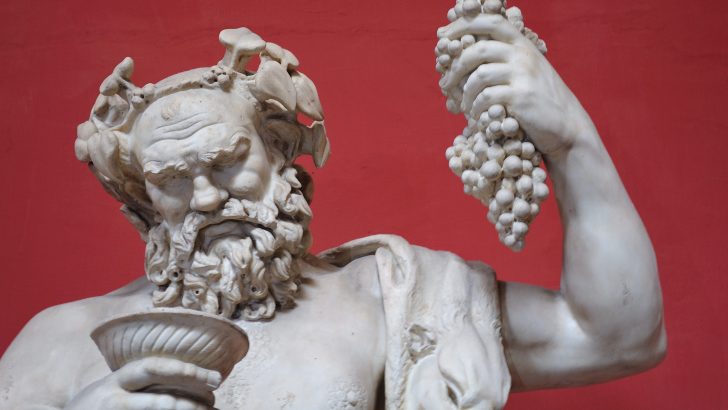Why do sincere people so often find themselves at odds with each other? The issue here is not about when sincerity meets insincerity or plain old sin. No. The question is why sincere, God-fearing people can find themselves radically at odds with each other.
Among other things, it can help us understand what’s at the root of many of the conflicts between sincere people and why we have a lot of religious differences”
There’s an interesting passage in Nikos Kazantzakis’ autobiography that intimates far more than it reveals at first glance. Commenting on Greek mythology and the many conflicts there among the gods and goddesses, Kazantzakis writes this: “The heroes in ancient Greek tragedies were no more or less than Dionysus’s scattered limbs, clashing among themselves. They clashed because they were fragments. Each represented only one part of the deity; they were not an intact god. Dionysus, the intact god, stood invisible in the center of the tragedy and governed the story’s birth, development, and catharsis. For the initiated spectator, the god’s scattered limbs, though battling against one another, had already been secretly united and reconciled within him. They had composed the god’s intact body and formed a harmony.”
In Greek mythology, the supreme god, Dionysus, was intact, containing all the scattered pieces of divinity that took particular incarnations in various gods, goddesses, and human persons. Inside Dionysus, the intact god, there was harmony, everything fitted together, but everywhere else various pieces of divinity wrestled and sparred with each other, forever in tension and in power struggles.
Fertile metaphor
That image is a fertile metaphor shedding light on many things. Among other things, it can help us understand what’s at the root of many of the conflicts between sincere people and why we have a lot of religious differences.
What is the root cause when people are at odds with each other and there is no insincerity or sin involved, when both parties are honest and God-fearing? Today we speak of ideological differences, historical differences, political differences, and personal history as to why sincere people often see the world differently and are at odds with each other. We have a language for that. However, I’m not sure our current language (for all its sophistication) captures the heart of this as clearly as does that particular metaphor inside Greek mythology. In the end, aren’t we all grabbing our own piece of God and making it the be all and end all, without accepting that those we are fighting also have a piece of God, and we have divinity fighting divinity?
Boiled down to its root, isn’t that what lies at the base of the tension between ‘conservative’ and ‘liberal’, between soul and spirit, between head and heart, between young and old, between body and soul, and between the other binaries that divide us? Haven’t each of us grabbed an authentic piece of divinity and (because we don’t have a vision of the intact God) let our piece of divinity become the prism through which everything else must be seen?
We are not an “initiated spectator” who, as Kazantzakis puts it, has enough of a vision of the intact God to see how all the pieces ultimately fit in harmony. So we continue in our disharmony.
Since we each emphasise one particular aspect of God, it is no surprise that, despite sincerity on all sides, we often don’t get along”
Much too can be gleaned from this image in terms of how we view other religions. Writing around the year 200 AD, one of our renowned Church Fathers, Clement of Alexandria, wrote a book he entitled (in Greek), Stromata, a word which literally means “being strewn about”. His concept (carefully nuanced through his Christian lens) was that God, while revealed normatively in Jesus Christ, is also “strewn” (in pieces) in other religions and in nature itself. In essence, what he is saying is that there are pieces of God lying around everywhere, though Clement doesn’t elaborate on how these discrete pieces of divinity often fight with each other.
More recently, Raimondo Panikkar (died 2010), one of the major Christian commentators on world religions, again picked up this concept of God as “strewn” and applied it to world religions. For him, what Christianity sees as contained in the Trinity is experienced in pieces in by people in other faiths. For example, certain faiths, like Buddhism, make central the experience of contingency, awe, dependence, and self-effacement in the face of what they believe to be ‘God’. For Panikkar, these are religions of “God the Father”. Some other faiths, particularly Christianity but also Judaism and Islam, strongly emphasise “God, the Father”, but their scriptures and other beliefs have an incarnational principle, a ‘Christ’. Certain other religions such as Taoism and Hinduism focus much more on the experience of spirit, the ‘Holy Spirit’. Since we each emphasise one particular aspect of God, it is no surprise that, despite sincerity on all sides, we often don’t get along.
God-fearing people
And so we, sincere, God-fearing people, are often at odds with each other; but it’s helpful to know (and acknowledge) that an ‘intact’ God stands invisible in the centre of our conflicts and watches us fight with “his scattered limbs”, knowing that in the end all these strewn pieces will be united again in harmony.


 Fr Ronald Rolheiser
Fr Ronald Rolheiser
